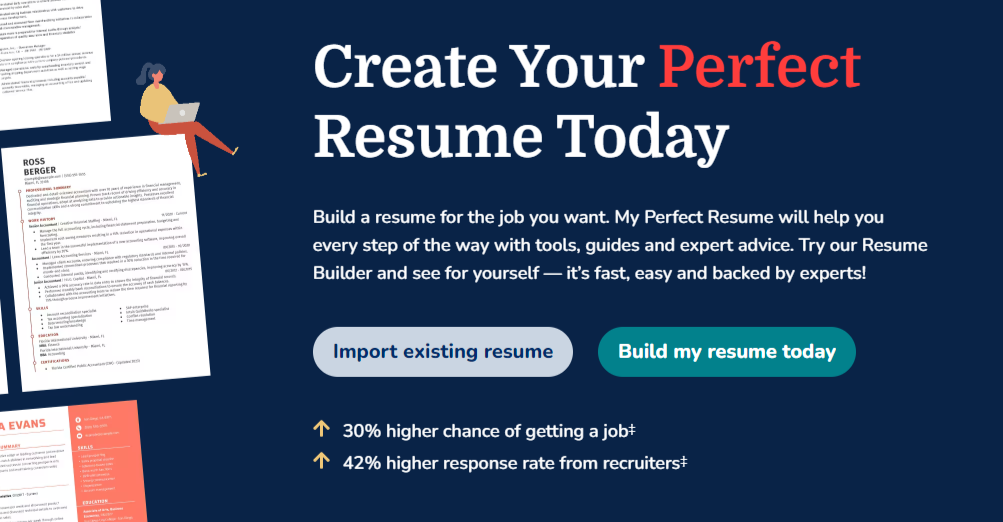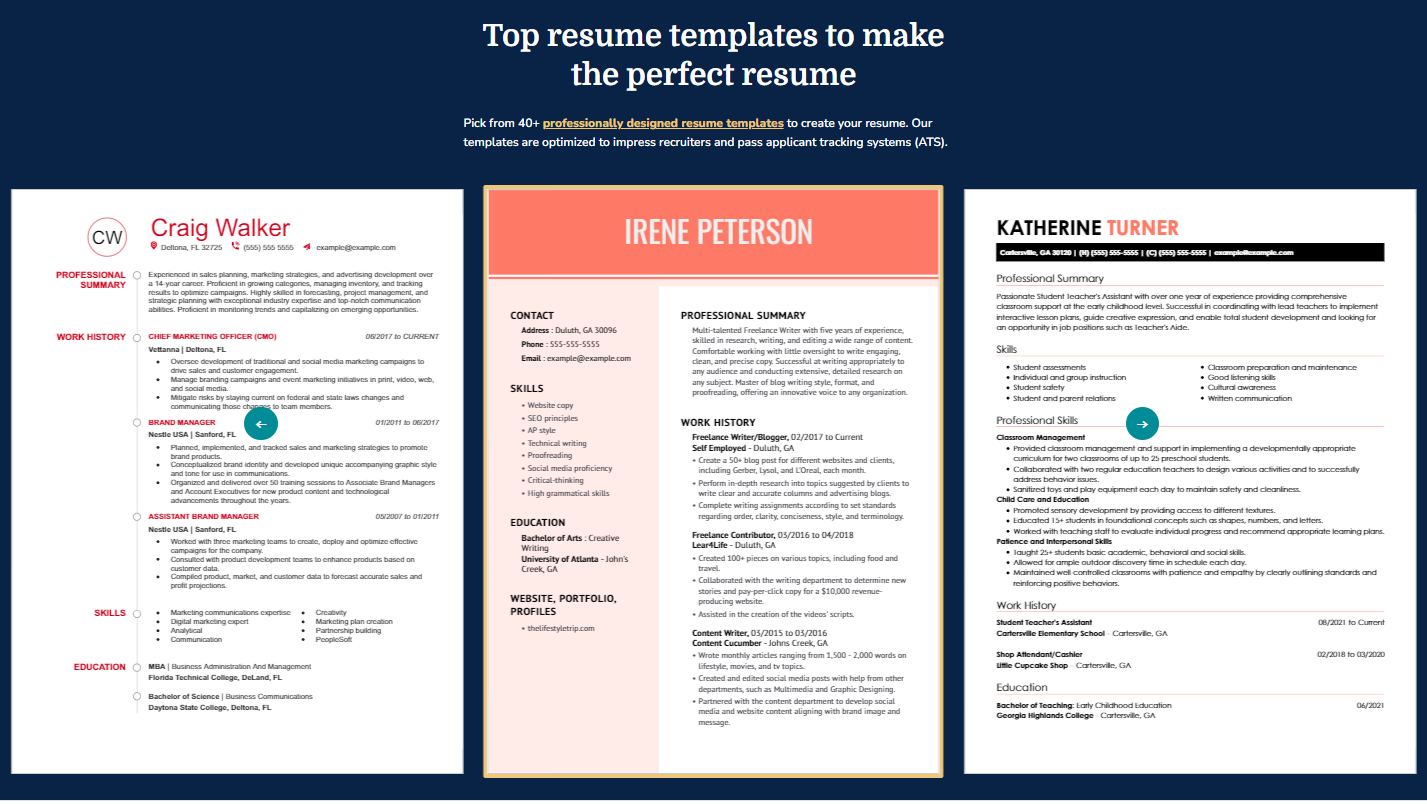Preparing for a job interview can be a daunting task. But with the right approach, you can significantly increase your chances of success.
To help you, I have compiled 11 essential steps to ensure you are well-prepared, confident, and ready to make a great impression.
In this guide, I’ll walk you through the following steps:
- Research the Company
- Understand the Job Description
- Practice Common Interview Questions
- Prepare Your Own Questions
- Review Your Resume and Cover Letter
- Plan Your Outfit
- Gather Necessary Documents
- Practice Good Body Language
- Prepare Your Travel Arrangements
- Get a Good Night’s Sleep
- Stay Calm and Positive
Sounds great? Let’s get started!
Read Also:
A Quick Guide to Write a Cover Letter in 2024
How to Write a Perfect Resume and Land that Dream Job
11 Simple Steps to Prepare for an Interview
In this section, I’ll take you through 11 practical steps to help you get ready to ace that interview.
1. Research the Company
Start by visiting the company’s website to gather information on their mission, values, products, and services.
Take notes on their recent projects or any news articles that mention them. If you’re interviewing for a tech company, for example, learn about their latest product releases or technological advancements.
Use LinkedIn to view the company’s profile and the backgrounds of potential interviewers.
This comprehensive research allows you to connect your skills and experiences with the company’s goals, making your answers more relevant and showing that you’ve invested time in understanding them.
It also helps you gauge if the company’s culture aligns with your values and work style.

2. Understand the Job Description
Carefully read the job description to identify key responsibilities and required skills. Create a list and match each requirement with your own experiences.
For instance, if the job requires project management skills, recall a time when you successfully led a project, detailing the steps you took and the results you achieved.
Write down these examples to prepare for potential questions. This step ensures that you can confidently discuss how your background aligns with the job’s needs, showing the interviewer that you have the right qualifications and experience.
3. Practice Common Interview Questions
Prepare answers for frequently asked interview questions. Write down your responses and practice speaking them out loud.
Questions like “Tell me about yourself” should highlight your professional background and key achievements, while “Why do you want to work here?” should reflect your research on the company and how it aligns with your career goals.
Use the STAR method (Situation, Task, Action, Result) to structure your answers, ensuring you provide clear and concise examples.
Practicing your answers helps you feel more confident and articulate during the interview.
4. Prepare Your Questions
Think about what you want to know about the role and the company. Prepare questions that show your interest in the job and your desire to succeed.
Ask about team dynamics, company goals, and opportunities for professional growth.
For example, “Can you describe a typical day in this role?” or “What are the biggest challenges the team is currently facing?” These questions not only demonstrate your enthusiasm but also help you determine if the job is a good fit for you. Having a list of questions ready also shows that you’re proactive and engaged.
5. Review Your Resume and Cover Letter
Go through your resume and cover letter carefully. Be prepared to discuss any point in detail. Think about specific stories or examples that highlight your skills and achievements.
If your resume mentions leading a successful marketing campaign, be ready to talk about your role in that project and the outcomes you achieved.
Reviewing these documents ensures that you can back up everything you’ve claimed, reinforcing your credibility and readiness.
It also helps you stay consistent in your answers, which is crucial for building trust with your interviewer.
If you don’t have a great resume yet, don’t worry. There are great sites that can help you generate a perfect resume.
The sites include:
|
6. Plan Your Outfit
Choose an outfit that suits the company’s culture while making you feel confident and professional.
For a corporate job, a well-fitted suit is usually appropriate. In a creative or casual environment, you might opt for business casual attire.
Make sure your clothes are clean, ironed, and comfortable. Wearing something that makes you feel good boosts your confidence, helping you present yourself more positively.
Your appearance is often the first impression you make, so dress in a way that reflects your professionalism and respect for the opportunity.
7. Gather Necessary Documents
Prepare multiple copies of your resume, cover letter, and any other required documents, like references or a portfolio.
Place them in a neat folder to keep them organized. Bringing these documents shows that you’re well-prepared and detail-oriented.
Additionally, having a notepad and pen allows you to take notes during the interview, which can be helpful for following up and demonstrating your engagement.
This level of preparation can set you apart as a candidate who is serious and ready to take on the role.
8. Practice Good Body Language
Your body language communicates a lot about your confidence and interest. Practice maintaining eye contact to show engagement, offering a firm handshake to convey confidence, and sitting up straight to appear attentive.
Avoid crossing your arms, which can seem defensive, and instead, keep an open posture. Smile and nod while the interviewer speaks to show you’re actively listening.
Good body language helps you come across as confident and approachable, making a positive impression on your interviewer.
9. Prepare Your Travel Arrangements
Plan your route to the interview location well in advance. Check the estimated travel time and add a buffer for unexpected delays, aiming to arrive 10-15 minutes early. If you’re driving, ensure you know where to park.
If you’re taking public transport, have a backup plan in case of delays. Arriving on time demonstrates punctuality and respect for the interviewer’s schedule, creating a positive first impression.
Being early also gives you a few moments to relax and mentally prepare before the interview starts.
10. Get a Good Night’s Sleep
Prioritize getting a full night’s sleep before your interview. Aim for 7-8 hours of rest to ensure you’re alert and focused.
Avoid caffeine or heavy meals late in the evening and try to wind down with a calming activity like reading or listening to music.
If you’re feeling anxious, practice relaxation techniques such as deep breathing or visualization.
Being well-rested helps you think clearly, respond thoughtfully, and stay calm under pressure, enhancing your performance during the interview.

11. Stay Calm and Positive
Interview nerves are natural, but managing them is key. Practice deep breathing or visualization exercises to calm your mind before and during the interview.
Remind yourself that the interview is a two-way street—you’re also evaluating if the company is right for you.
Maintaining a positive attitude helps you handle unexpected questions gracefully and shows that you’re adaptable and composed.
Approach the interview with confidence, focusing on showcasing your strengths and making a connection with your interviewer.
Final Thoughts
That’s it. Now you have a comprehensive guide on how to prepare for your next interview.
Remember, thorough preparation makes all the difference and sets you apart from other candidates.
Success in an interview comes down to confidence, knowledge, and the ability to present yourself effectively.
Follow these steps, stay positive, and you’ll be well on your way to landing your dream job. Good luck!
Read more articles:
How to Start a Nail Parlour Business in Kenya








